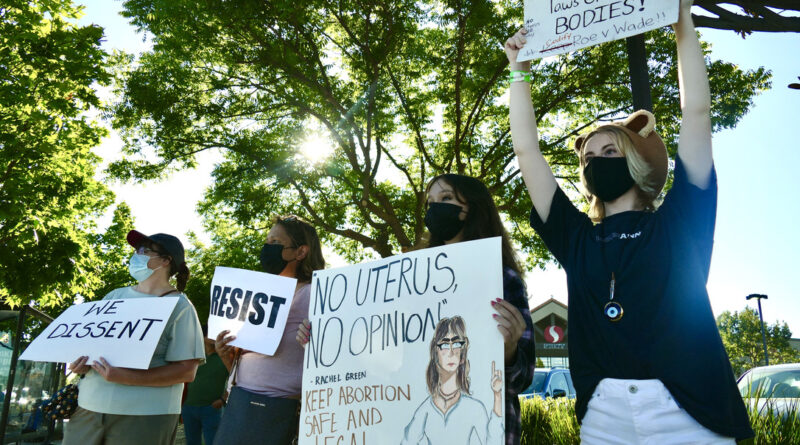Roe v. Wade overturned; essential healthcare restricted
From 1973 to July 2022, the Supreme Court case Roe v. Wade set the precedent that abortion was constitutional. On June 24, Roe v. Wade’s decision was reversed, leaving each state the ability to decide its stance on abortion. Thirteen states had trigger bans ready for if the precedent was overturned ー Arkansas, Idaho, Kentucky, Louisiana, Mississippi, Missouri, North Dakota, Oklahoma, South Dakota, Tennessee, Texas, Utah, and Wyoming ー while others have been reacting to this decision in real-time. Either way, the unprecedented decision is having clear impacts across the country.
Already South Dakota, Texas, Oklahoma, Wisconsin, Arkansas, Missouri, Louisiana, Mississippi, Alabama, and Kentucky have total bans on abortion.
A ten-year-old in Ohio was raped and had to travel to Indiana to receive an abortion. She was not provided access to abortion in Ohio because of the state’s ban on abortion at six weeks, without even rape being an exception. For context, six weeks pregnant can be two weeks late for a regular period. In the same realm, a 16-year-old was told she was not mature enough, according to a Florida court.
“Nobody, let alone teenagers, should have to watch the government decide what they can or can’t do with their own body. How can a child not be mature enough to get an abortion, but mature enough to singlehandedly raise a baby?” senior Autumn Kasl-Godley said.
Junior Tien Nguyen agrees: “if it was really children that those lawmakers care about, they would be doing more for childcare and support, the deeply broken adoption and foster system, and kids who are in broken homes. Forcing that 16-year-old to give birth means that the baby is likely going into the overwhelmed adoption system.”
Idahoenacted an abortion ban on August 25, which will make treatments for ectopic pregnancies very unclear. An ectopic pregnancy — where the fetus develops outside of the uterus — has little chance of survival, but the abortion ban will blur the lines of what treatments are not inducing miscarriage, and therefore illegal. Planned Parenthood of Idaho and the Biden administration are both suing to block the ban.
“It’s a medical necessity to have the right to an abortion; if a [parent] would die because of [their] fetus, the fetus wouldn’t make it either,” Nguyen stated.
The demand for alternative routes to abortion has increased heavily since the reversal of Roe v. Wade. More people who have the capacity for pregnancy are getting abortion pills, Plan B, or contraceptive pills. President Biden even signed an executive order protecting reproductive health care. This requires the Secretary of Health and Human Services (HHS) to “protect access to medical abortion,” “ensure emergency medical care” includes abortion, “protect access to contraception,” and “convene volunteer lawyers,” while protecting patients’ and providers’ right to privacy, safety, and protection, according to the White House fact sheet on the executive order.
Contrasting with the rest of the states debating over abortion rights, Kansas left the decision of whether or not to ban abortions up to the people. They voted to keep access to abortion legal.
A bill entered the House of Representatives with the ability to protect people who get abortions regardless of their home state’s stance on abortion. It passed the House in July but has not been touched by the Senate.
Congresspeople, including Alexandria Ocasio-Cortez, Ilhan Omar, Ayanna Pressley, Judy Chu, Veronica Escobar, and Carolyn Maloney along with 180 other protesters, were all arrested for protesting the overturning of Roe v. Wade outside of the Supreme Court.
“It is good that they are protesting because banning abortions puts so many people at risk, and it is so wrong for them to get arrested because that violates our rights to protest. Why does this get people arrested, but people who do things that actually harm others don’t get anything,” sophomore Jocelyn Schmeck exclaimed.
As the November midterm elections come up across the states, more states will have abortion on the ballot, and bans will come and go. Abortion rights are intertwined with other human rights being stripped, and that is reflected in the other rights on the ballot and the Supreme Court docket.

